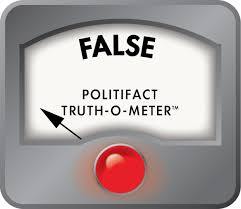One of the problems that usually arise in many different markets is the problem of asymmetric information between buyers and sellers. In a classic paper in The Quarterly Journal of Economics, August 1970, Nobel Laureate George A. Akerloff argued that when there are goods of different quality and sellers have more information about quality of their products than buyers, bad quality products would be overpriced and good quality products would be underpriced. Hence, bad quality products (lemons) will crowd out good quality products from the market.
The paper was influential in the enactment of lemon laws. Lemon laws are consumer protection laws. These laws led to either implied or express warranties of products, adoption of Uniform Commercial Code in all 50 states as the "general source of contract law", and the passage of Federal Mognuson-Moss Warranty Act in 1975, laying out regulations for consumer product warranties with the retail prices of $15 or more. Dodd-Frank Wall Street Reform and Consumer Protection Act of 2010 has attempted to fix this problem in banking and finance industries.
The media market is facing the same problem. Just like product markets, the media market has suppliers of information, newspapers, news and other information-based programs on television and on the Internet, and other electronic media sources with blogs, including social media such as Facebook, Twitter, etc. Suppliers may also include institutions and people who generate information, false or accurate, and the media sources report that information. On the receiving end are consumers of information. Lemon problem arises when information received is either false or not quite authentic (rumor), however suppliers, as opposed to consumers, may know how false or truthful the information is.
Washington Post columnist Margaret Sullivan, September 11, 2016, raises her concern about crowding out of accurate information by false information in the media. Quoting Leonard Downie, Jr., former Executive Editor of The Washington Post, she states, " ' There's a cacophony of untrue information out there', and it is drowning out what's dependable and accurate ..." She further emphasizes her point by paraphrasing Richard Hornik, Center for News Literacy, Stony Brook University, that " The growth of truth-seeking efforts like The Post's Fact Checker or Politifact is great,..., but these efforts don't do much good if news consumers are unable to decide who or what to believe. OR worse, don't care." Donald Trump has manipulated the media market quite successfully by spreading misinformation, rumors, and confusion in the media market.
The Internet revolution and the advent of social media have turned the media market on its head. It has made every person an amateur journalist without the heavy burden of verifying truthfulness of information. Even Mr. Trump has found Twitter an effective source of broadcasting his views and rumors. There is information overload, given the proliferation of media sources in the Internet, including social media. Hence, it is becoming difficult and time intensive for an average person to sort out the truthfulness of information.
Nicholas Kristof points out in his column in The New York Times, Sep" false equivalences". He is concerned that reporting may be feeding "misperceptions." For example, Kristof refers to a CNN/ORC poll that found that more voters thought Mr. Trump more "honest and trustworthy" than Hillary Clinton even though Politifact found that a large number of Mr. Trump's statements were untrue relative to Mrs. Clinton's. Another example is the "birther" rumor spread by Mr. Trump, that President Obama is not an American citizen because he was born in Kenya. Many of Mr. Trump's supporters believed him despite the fact that President Obama released his birth certificate from Hawaii. Many media sources were partly responsible in fanning that rumor.
Professor Cass Sunstein argues in his book On Rumors (2014) that rumors spread due to social cascades and group polarization. Social cascading occurs when we follow what "other people think and do", and group polarization results when we mix with like-minded people to discuss rumors. Group signaling of false rumors firms up our belief in the truthfulness of false rumors. The Internet facilitates that type of 'group think'. Dictatorships thrive on misinformation and rumors. Sunstein argues that according to psychological studies "rumors are far more likely to spread if they trigger and engage emotions." Mr. Trump is tapping the emotions of his supporters by spreading rumors and falsehoods.
Even though Mr. Trump has recently admitted that President Obama was born in the US, he is now trying to spread another false rumor, that Mrs. Clinton started the "birther" rumor when she was running for president against President Obama. We have to see how far this rumor catches fire in the media, and if the media broadly exposes this falsehood. Falsehoods in media sources also create public mistrust of professional media outlets. Hence, it is incumbent of the professional media to constantly and broadly expose false information and those who spread such information, otherwise lemons in the media market for information will undermine democracy.
Mathur is former chair and professor of economics, and now professor emeritus, Department of Economics, Cleveland State University, Cleveland, Ohio. He resides in Ogden, UT.

